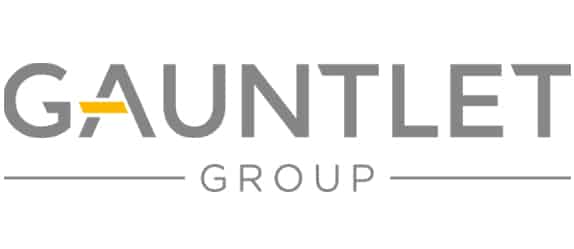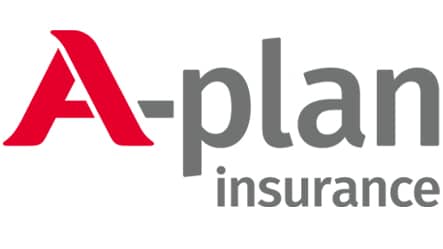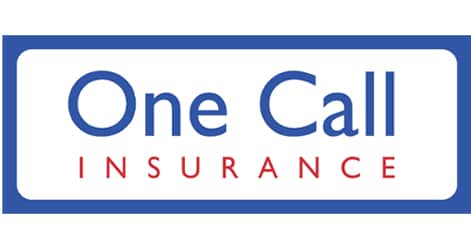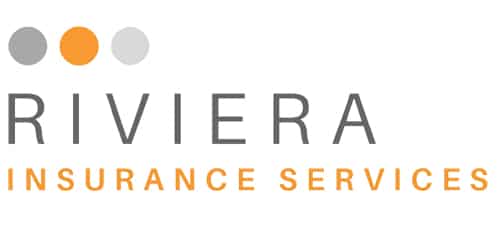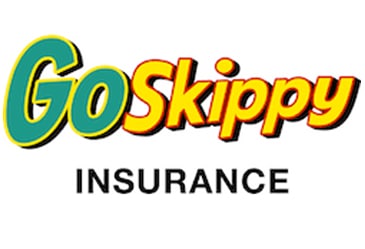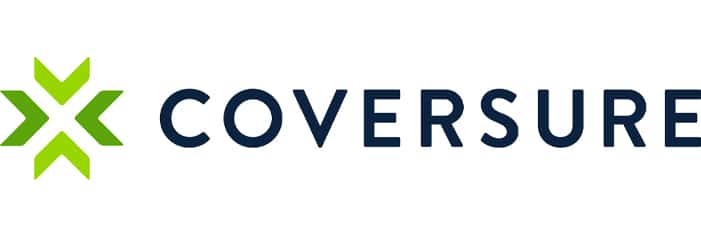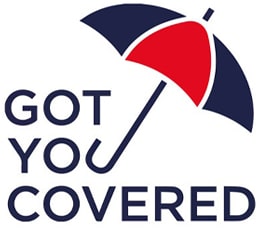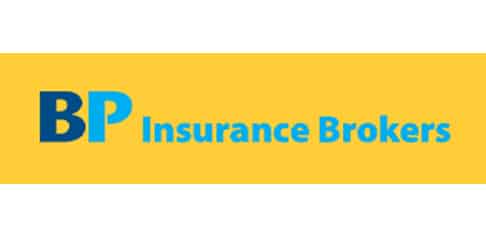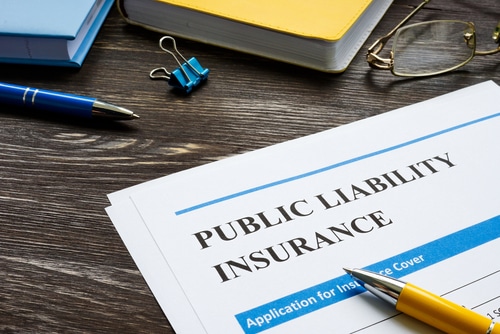Takeaway Insurance
Compare takeaway insurance quotes online
- Complete one short form
- Quickly compare quotes
- Find a great deal today

Lowering the cost of your takeaway insurance
The food industry is by far one of the most stressful; anyone who owns a takeaway shop knows exactly what we mean. Something is likely to go wrong at some point in any company’s operations, and having business cover can be of immense help.
To help, we’ve provided you with a comprehensive guide to takeaway insurance, including employers’ liability insurance, public liability insurance, food delivery insurance, equipment cover and more.
What is takeaway insurance?
As the name suggests, takeaway insurance is a policy tailored to takeaway businesses. These policies are specifically designed to cover incidents that may occur during the takeaway’s day-to-day operations.
All food businesses come with many risks, and takeaways are no exception. Takeaway shop insurance policies can cover both internal and external operational incidents.
Why do you need takeaway shop insurance?
If you’re in the takeaway business, the margin for what can go wrong is significantly wider than that of other establishments. Should the worst happen, being covered will be much better than the alternative.
If you’re still hesitant to invest in cover for your takeaway restaurant, you might want to reconsider quickly, as insurance is also a legal requirement in the UK. According to the Employers’ Liability Act, business owners must ensure the safety of their staff and provide them with cover, reducing the likelihood of compensation claims.
The pros of getting commercial cover outweigh the cons by far. With a good takeaway insurance policy, you’ll be given peace of mind while ensuring that your shop’s growth, as even what some view as minor incidents or problems could have serious consequences in future if not covered.
It’s easy to underestimate the impact that legal fees could have on your business if a disgruntled patron decides to take legal action.
What does takeaway insurance cover?
Employers’ liability cover
With employers’ liability insurance, your workers will be covered if they fall ill or get injured on the job. Beyond being a standard part of takeaway insurance policies, employer’s liability is also a legal requirement. This type of cover will be particularly useful if you have delivery drivers.
Public liability insurance
Public liability insurance can cover the cost of claims if your takeaway shop causes injury, illness, or property damage. Unlike employers’ liability insurance, this protects a takeaway shop from compensation claims by members of the public who have been harmed in any way on your premises.
Some insurers will offer public and product liability insurance, the latter of which can extend to issues such as food poisoning and allergic reactions.
Building insurance
When damage occurs to your property, the cost of repairing that damage can be quite a setback for any business.
Building insurance covers the cost of repairing damage to your building’s structure and the various fittings and underground cables you use.
Stock insurance
Stock is a key part of any food business. If anything were to happen to your stock, your company might not be able to function at full capacity, which can lead to losses.
If items such as your prepared food, ingredients, and packaging are damaged, lost, or stolen, stock insurance can cover the cost of the loss and help you implement measures to prevent future losses.
Contents cover
Natural disasters, fire, and theft can be a huge financial hit. With contents insurance, the fixtures, fittings, and operational equipment of your takeaway shop will be covered should they get damaged. This could even cover incidents where someone accidentally knocks over a piece of equipment.
Legal expenses cover
This type of insurance covers the costs when your shop is involved in legal proceedings, frequently involving employee and customer disputes, property damage, and compliance issues.
Business interruption cover
The unfortunate reality is that we can’t control the weather and most things that happen in this world. If an incident brings your operations to a halt, business interruption cover can keep your business afloat by helping you get back to your financial state before the incident.
Additional takeaway insurance
Tenant’s improvements
If you implement any aesthetic or structural changes damaged through an incident such as fire or flooding, tenant improvements insurance can keep you covered. With this type of coverage, you must communicate these changes to your insurer as soon as they’re made.
Cyber attacks cover
Regardless of how big or small your business is, you aren’t immune to the possibility of cyber attacks. Cyber attacks target computer information systems to uncover and steal key information. Most insurers don’t offer this as a standard part of their policies, so asking for cyber attack cover might be a good idea.
Mechanical breakdown cover
If your deep fat fryer breaks down, you’ll have no choice but to fix it, and if you’re not a mechanic, you might just have a hefty bill coming your way.
Investing in mechanical breakdown cover is a good idea for businesses that rely heavily on equipment to fulfil their everyday functions. If your equipment unexpectedly breaks down, then mechanical breakdown cover can handle the cost of repairing it.

Why compare takeaway insurance with Utility Saving Expert?
If you have a takeaway shop that you’ve been struggling to insure, then Utility Saving Expert can help relieve the pressure.
We have a team of experts who can provide insights on selecting a policy that works for you.
If you’d prefer to go it alone, you can always use our advanced comparison tool. Utility Saving Expert’s comparison tool uses the latest search technology to find and compare business insurance quotes from the UK’s leading insurers.
We do our best to ensure you’re given a streamlined experience so you don’t waste countless hours that would be better spent on improving your business.
Takeaway insurance will typically set you back around £560 per year, but this will depend on a number of factors related to the nature of your business and the extent of the cover provided by your insurer.
This is why Utility Saving Expert’s comparison tool searches all the available databases to find competitive quotes from trustworthy insurers.
Knowing what coverage you need is important as it could be the difference between your claim being paid out or not.
To start off, employer’s liability insurance is legally required, but what is required beyond that could vary according to several factors.
If you’re unsure what type of business insurance your shop needs, then don’t make any assumptions. Instead, you should consult our team of experts, who will gladly guide you through finding a takeaway business insurance policy with the appropriate level of cover.
Comprehensive coverage can be quite expensive, so one of the simplest ways to save money on your insurance is by seeking cost-effective insurers and comparing quotes before committing to a contract.
You can also save money on your insurance by increasing your excess, although this approach is not the most advisable and won’t decrease your premium.
Lastly, you can check your current or prospective policy to ensure you only pay for what you need. Many business owners tend to sign on the dotted line without thoroughly checking the document. Some policies’ extra add-ons may be valuable, but they also may not be necessary.
Given the nature of the food industry, takeaway shop owners need to be prepared for the following types of claims:
- Food poisoning – This is an event in which a customer falls ill after consuming an item prepared on your premises.
- Food wastage – Instances during which food is no longer fit for consumption, largely after an issue related to storage.
- Allergic reactions – There are many cases in which customers unknowingly consumed items without knowing what was in them, thus causing an allergic reaction.
If you’re renting a space, chances are that an insurer will cover any improvements made. This can cover both temporary and permanent renovations such as fixtures or alterations.
However, these have to be improvements made with your landlord’s permission. Additionally, a landlord’s insurance policy won’t cover the cost of reinstating improvements following a claim as they belong to the business owner.
Finding an insurer must always be done cautiously; here are some tell-tale signs that you probably shouldn’t place your trust in a particular insurer:
- Pressuring you to sign – While some insurers can be a bit pushy, some may take it a bit too far. Always be aware of agents that want you to buy a policy immediately. Ethical ones generally give you sufficient time to think it over.
- Gives you a low premium – This is a common tactic among ghost brokers. In the case of insurance, if it seems too good to be true, it probably is.
- Lack of credentials – If you log onto an insurer’s website and don’t find key details such as a physical address and firm reference number, you should probably start looking at other options.
- No supporting documents – Before you’ve even paid your premium, you should receive a host of supporting documents.
- They misclassify your business – The last thing you need is not to be able to claim on the basis of your company being labelled as a ‘gym’ instead of a takeaway shop. Some unscrupulous insurers may intentionally do this to avoid scrutiny from underwriters.
As a starting point when trying to find an insurer, always ensure that the insurer you are looking at is authorised and regulated by the Financial Conduct Authority. Get in touch with Utility Saving Expert today to find reliable insurance for your business with ease.



